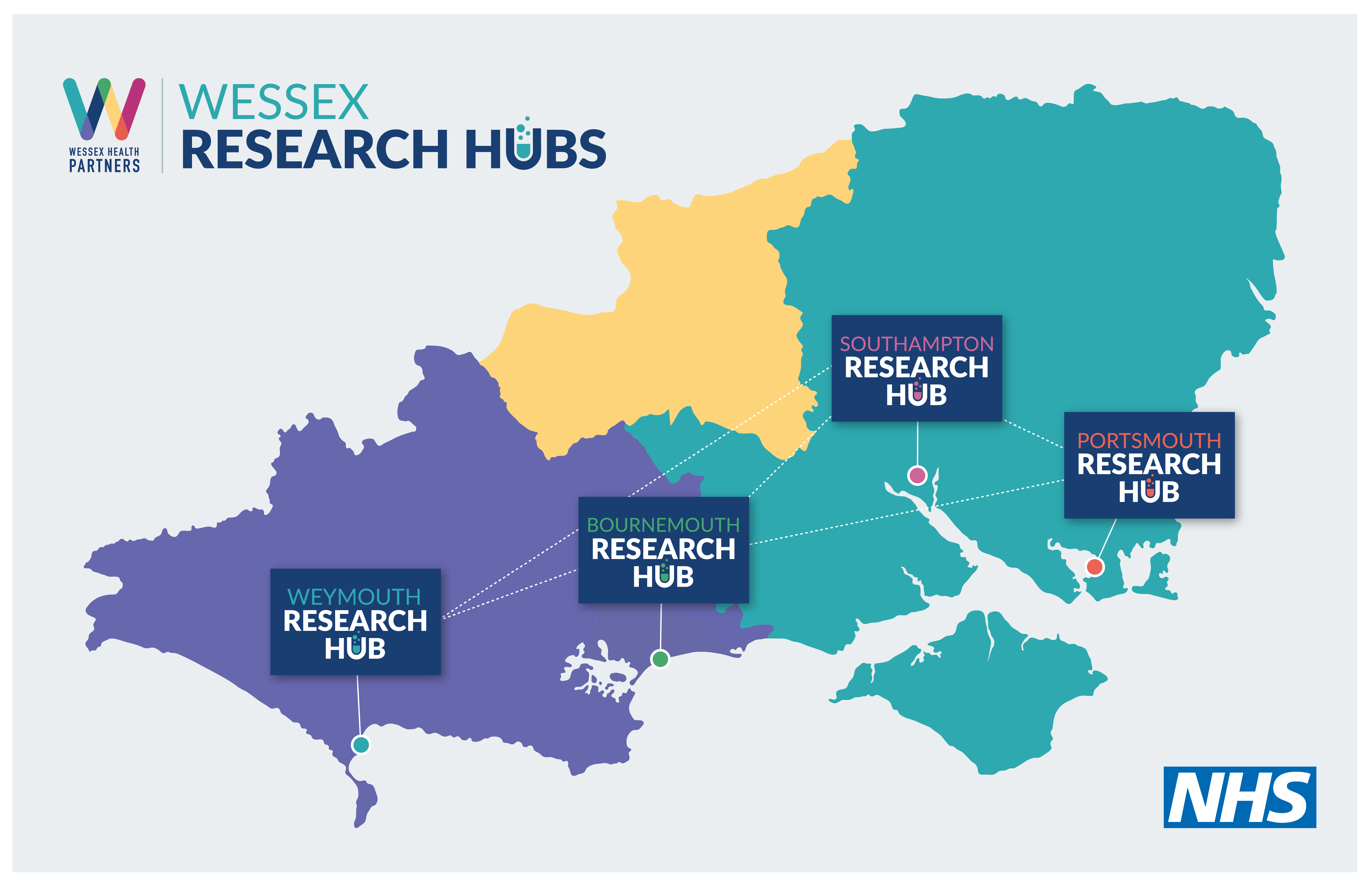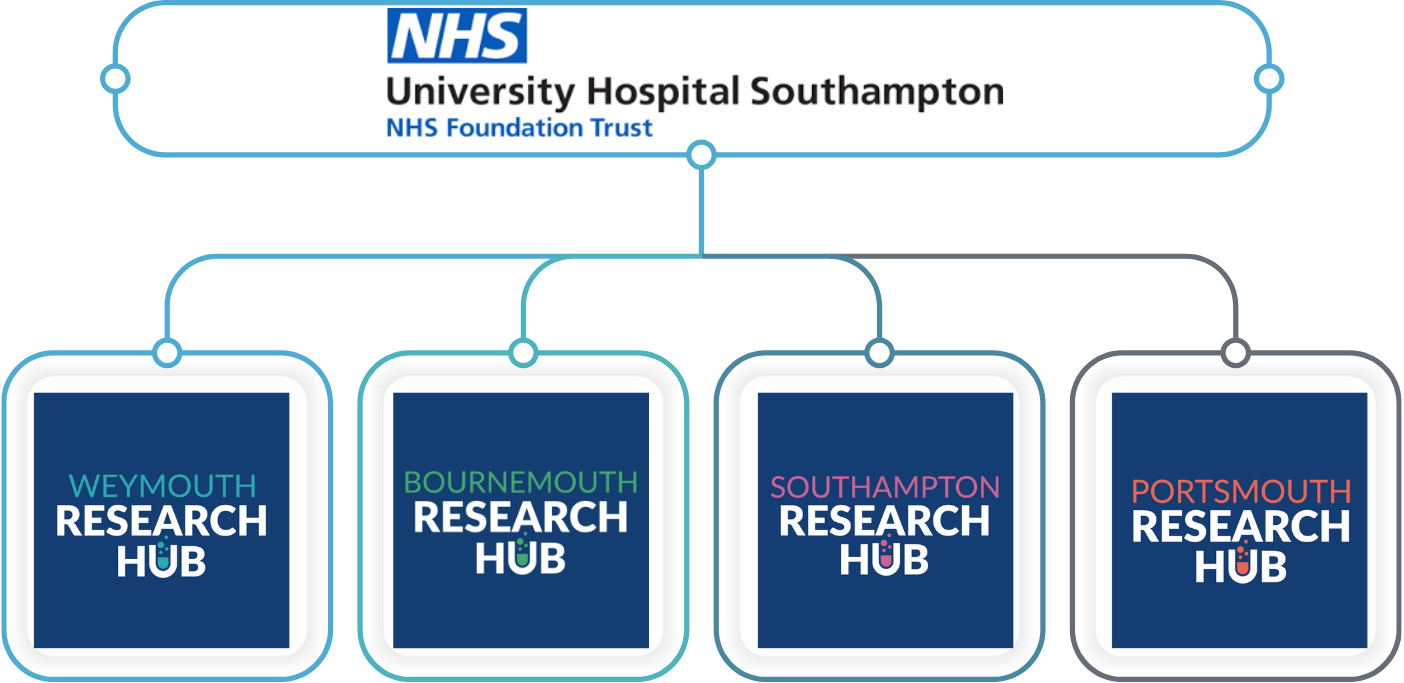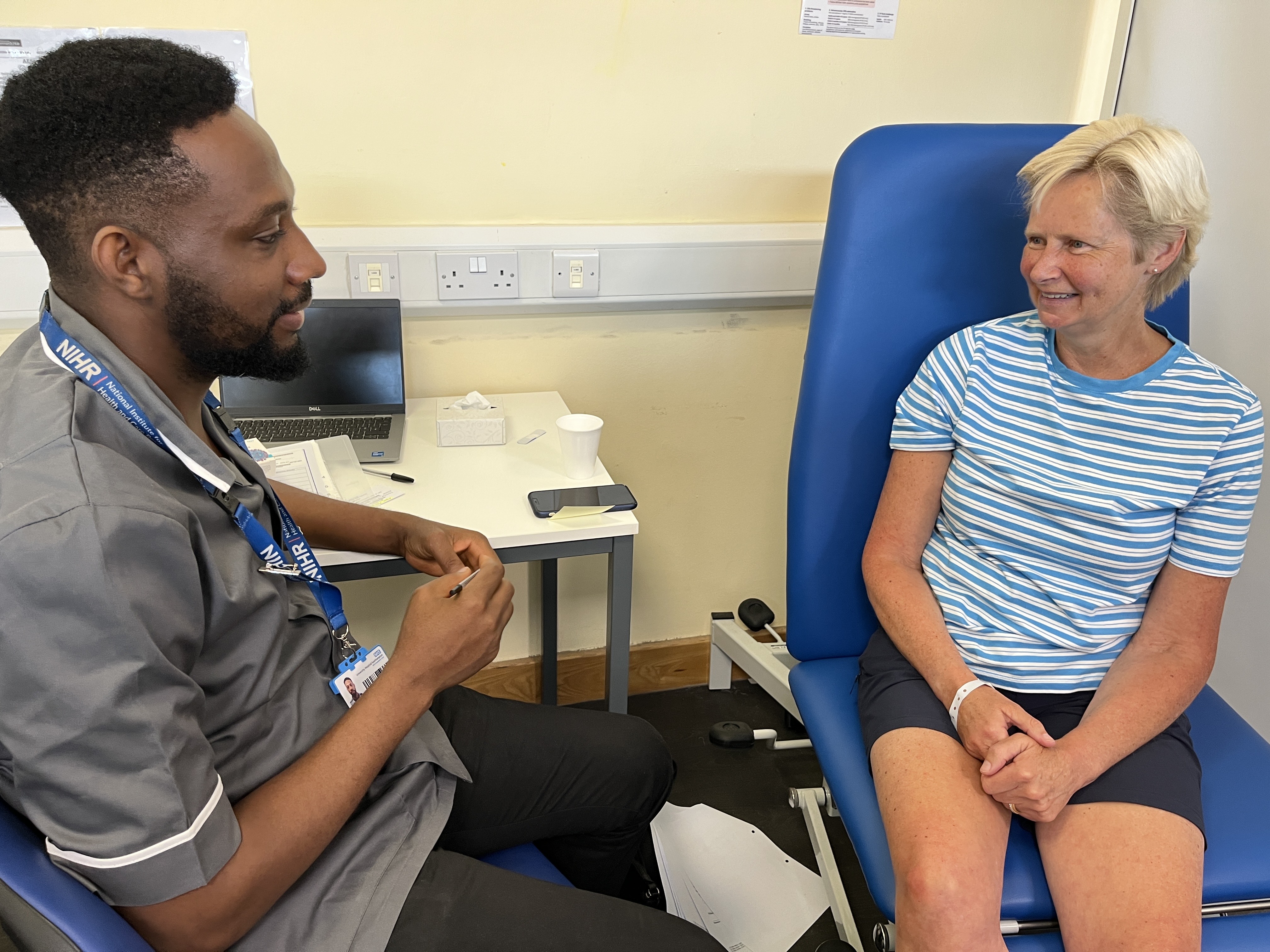Wessex Research Hubs are a collaborative network of clinical trial facilities delivering research at scale and pace. The network consists of:
- Bournemouth Research Hub - based in a major general hospital, this hub recruits from one of the most elderly populations along the south coast, offering a unique demographic.
- Portsmouth Research Hub - working out of a community centre, this hub offers later phase trials and is embedded in city life.
- Southampton Research Hub - based in the Royal South Hants community hospital, this hub caters for trials from phase one onwards.
- Weymouth Research Hub - based in an NHS vaccination centre, this hub is finding new ways to engage with the coastal population.

How the hubs began
Wessex Research Hubs began in 2020 as an emergency response to the Covid-19 pandemic, enabling high-volume, high-throughput vaccine trials.
The setting up of these new hubs brought together several NHS Trusts and the
National Institute for Health and Care Research (NIHR) in a unique collaboration, with the aim of delivering vital public health studies in Southampton and Bournemouth at a time of unprecedented national crisis.
Due to restrictions at the time, it was not possible to ask people to come into hospital settings to take part in this research. Therefore, new spaces were used in the community and adapted for clinical use. This proved very beneficial as participants found it more convenient to visit these sites. This efficient way of recruiting at pace and scale meant over 1,000 participants were recruited to these trials.
Portsmouth and Weymouth Hubs followed, and this created a network of four linked facilities, recruiting across Hampshire and Dorset. The results of these clinical trials formed a major contribution to the roll out of Covid-19 vaccines, and helped roadmap the way out of the pandemic.
How the model works
The linked hubs model has proved very attractive to sponsors looking to open research at scale and pace. Sponsors can discuss their requirements with one contracting organisation, but have four sites at their disposal.
The Research & Development (R&D) team at the contracting organisation, University Hospital Southampton NHS Foundation Trust, performs set-up functions with each sponsor and Principal Investigator, on behalf of the four hubs.
Known as a 'multi-site single contract' model, this allows the sponsor to liaise with just one point of contact for all R&D, staffing, laboratory and pharmacy requirements, budgeting and official documentation. This means sponsors benefit from vastly increased recruitment reach across multiple sites without duplicating work, saving time on set-up and administration.

The sites are equipped with the infrastructure, staffing and skills to deliver both commercial and non-commercial studies. The current pipeline includes vaccines studies for Covid-19, flu, RSV (respiratory syncytial virus), Mpox and shingles, as well as maternal and paediatric studies. All phases of studies can be facilitated at the hubs and there are plans to expand the type of studies delivered in the future.
With three of the hubs based in local community settings, the hubs are helping to reach groups historically under-served by research opportunities. Their increased accessibility helps remove barriers to participation - as many potential participants are not keen on driving long distances into hospitals, parking and navigating large sites.
Future aims
The aim is to open further centres within the region, particularly in community settings, and grow the pipeline of studies. Work is being done to build awareness of the hubs, encouraging a greater diversity of participants to come forward. There is also work to educate sponsors on the advantages of running trials in this way, and designing study protocols around this model from the start.
The long-term ambition is to align the research in each hub with the health needs of local communities. This way, the impact of the model can be maximised, giving patients access to innovative treatments and interventions, and helping the NHS address health inequalities.


